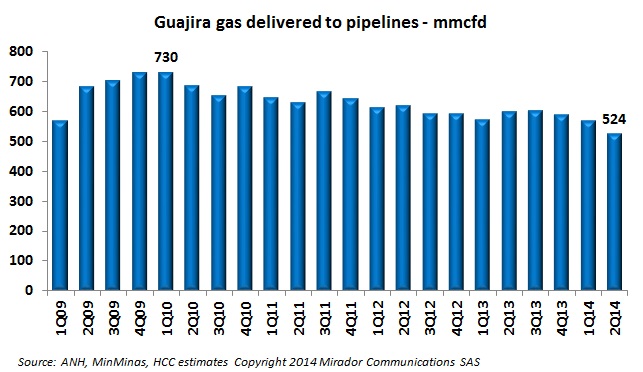President Juan Manuel Santos admits that the substantial drop in international oil prices is going to have an impact on public finances, with the worst consequences of its fall thus far coming in 2016.
Looking at two bills involving royalties and two very different outcomes: a bill to modify the bill sank after lack of quorum in the chamber of representatives. Meanwhile the royalty budget bill has passed through the Senate in record time.
The Chamber of Oil Goods and Services (Campetrol) will launch a platform that will allow individuals to denounce instances of corruption in the oil sector, part of its effort to combat unfair practices and increase transparency.
The Ministry of Transportation and national police have announced restrictions of heavy vehicles on 44 different highways in Cudinamarca, Tolima, Santander, Quindío and Meta during December and the holiday season.

Regional governors, industry associations and congressional leaders have sounded the alarms on rate increases on natural gas that are planned for the Caribbean coast for 2015. Critics say the rise will amount to a 25% increase and effect both thermal generators and home consumers.
The Colombian Petroleum Association (ACP) broke ranks with other business association on an ongoing negotiation on tax reforms over the impact of the CREE surcharge, which ACP president Francisco Lloreda said will lead to a long term impact on E&P activities.
A constitutional reform stalls in the Senate, while the number of critics of the royalty system in Colombia’s congress grows, with a number of lawmakers taking a harsher tone against the national government. These and other royalty related stories in our periodic summary.
The Labor Ministry (MinTrabajo) has published a resolution that defines the list of municipalities where special requirements for local hiring will be implemented through a decree published in October.
After being pressed to comment on a proposed tax reform, the Minister of Mines and Energy Tomás González said the timing of the oil price drop coinciding with the tax reform discussions is “unfortunate”.